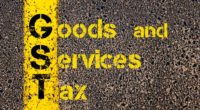The Central Board of Indirect Taxes and Customs (CBIC) has issued guidelines on recovery proceedings and clarified that the Goods and Services Tax (GST) officer shall give a reasonable time to the taxpayer to explain the reasons for mismatches between GSTR-1 and 3B.
The CBIC amended the GST Act to allow GST officers to directly initiate recovery action without any show-cause notice against those taxpayers who showed higher sales in GSTR-1 but under-reported it while tax payment in GSTR-3B.
The department made this amendment to curb the menace of fake billing whereby sellers show higher sales in GSTR-1 so that a purchaser can claim the Input Tax Credit (ITC) and report reduced sales in GSTR-3B to lower GST liability.
The GST officer used to issue show-cause notices and then initiated the recovery process in such cases of mismatch in GSTR-1 and GSTR-3B. However, after this amendment, various stakeholders raised doubts regarding implementing the amendment clause.
So, to clarify the doubts, the department clarified that the officer should allow the taxpayers to explain the reasons for the short payment of taxes when compared between GSTR-1 and 3B.
The CBIC stated that there might be a genuine reason for the difference between the sales declared in GSTR-1 and GSTR-3B. Suppose the law permits rectification of errors or omissions in the GSTR-1 or GSTR-3B of a particular month in the subsequent month returns.
Also, there may be cases where a transaction could not be declared by the registered person in GSTR-1 of an earlier tax period, though the tax on the same was paid by correctly reporting the said supply in GSTR-3B. Hence, the taxpayers might report those transactions in the GSTR-1 of the current tax period. In these cases, there could be more liability in GSTR-1 compared to GSTR-1 in the current tax period.
Therefore, it is clarified to provide an opportunity to the concerned taxpayer to explain the differences between GSTR-I and GSTR-3B for short payment or non-payment of the amount of self-assessed tax liability and interest thereon before initiating any action under Section 79 of the Act.
Now, the GST officer should send a notice to pay the amount short paid or not paid or explain the reasons for short payment or non-payment of self-assessed tax within a reasonable time.
CBIC clarified that there is no need to initiate recovery proceedings under section 79 if the concerned taxpayers can justify the differences between GSTR-1 and GSTR-3B or explain the reasons for short-payment or non-payment of tax to the proper officer.
However, suppose the taxpayer either fails to reply to the notice or fails to pay such an amount short paid or not paid, within the time prescribed, the tax officer may proceed for recovery.
For any clarifications/feedback on the topic, don’t hesitate to get in touch with the writer at dvsr.anjaneyulu@cleartax.in
DVSR Anjaneyulu known as AJ, is a Chartered Accountant by profession. Loves to listening to music & spending time with family and friends.





